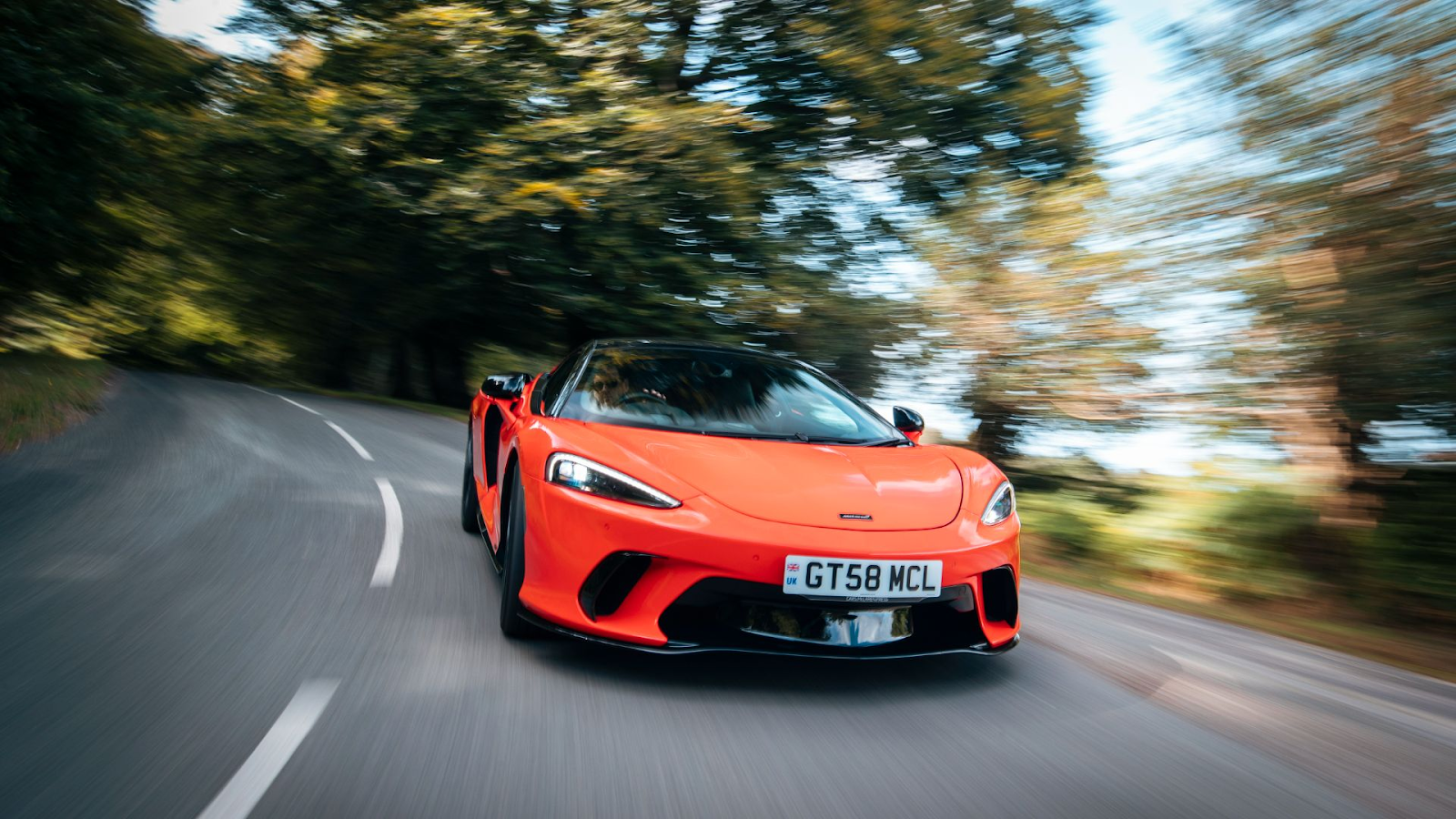McLaren GTS 2024 review: Woking’s forgotten supercar
For its first 11 years in existence, every car built by McLaren Automotive followed the same template: two seats, a mid-mounted V8, a dual-clutch gearbox and rear-wheel drive. From the original MP4-12C to Ultimate Series exotics such as the Senna, these supercars majored on going fast and having fun. Only the McLaren GT really broke [...]


For its first 11 years in existence, every car built by McLaren Automotive followed the same template: two seats, a mid-mounted V8, a dual-clutch gearbox and rear-wheel drive. From the original MP4-12C to Ultimate Series exotics such as the Senna, these supercars majored on going fast and having fun. Only the McLaren GT really broke the mould.
Granted, it used those same ingredients – and it was still fast and fun. But while the GT served up ferocious performance and typical McLaren agility, it also offered long-distance refinement and relative practicality. On paper, it was the best of all worlds. In reality, many were unconvinced by this soft-focus supercar. The reviews were mixed and sales have been slow.
Now the folks from Woking have reworked the recipe again, giving the five-year-old GT a facelift and a new name: GTS. Does the extra letter signify a Grand Tourer with added Sport? And if so, will the entry-level McLaren (yours from £179,260) follow the lead of the 750S and sacrifice some everyday usability at the altar of driving excitement? A week with the GTS should provide the answers.
A spaceship in Surrey
Collecting a car from the McLaren Technology Centre is always a treat. The factory looks like a UFO that has crash-landed in the Surrey countryside, its huge atrium filled with legendary road and racing cars – the actual Le Mans-winning F1 GTR among them. On the day of my visit, the mood seems buoyed by recent on-track success – the team now leads the F1 constructors’ world championship – and the debut of a new hypercar: the 1,275hp, £2 million W1. After a difficult few years, it feels like McLaren is bouncing back.
The GTS waiting outside is a darker shade of Helios Orange, rather than the signature Papaya. It looks subtly more aggressive than the GT, with gloss black trim instead of satin chrome, a resculpted front bumper and larger intakes atop the rear wings. Forged 10-spoke ‘Turbine’ wheels are a new option, albeit not fitted here. It’s a tad ungainly from some angles, but definitely shouts ‘supercar’ louder than front-engined rivals such as the Aston Martin DB12 and Ferrari Roma. Or indeed the rear-engined Porsche 911 Turbo S.
Speaking of engines, McLaren’s long-serving 4.0-litre twin-turbocharged V8 gains 15hp in the GTS, for 635hp in total. Maximum torque remains at 465lb ft, while kerb weight is down by a token 10kg to 1,520kg. Against the clock, that means 0-62mph in 3.2 seconds and 0-124mph in 8.9 seconds, plus a top speed on the far side of 200mph. It might have near-as-dammit half the power of a W1, but the GTS doesn’t hang about.
It still has proper luggage space, too. A total of 570 litres is split between the 150-litre ‘frunk’ (deep enough for an aircraft-style travel case) and 420-litre hatchback boot. The latter is a long, shallow compartment above the engine suitable for squashy bags or even – McLaren suggests – a pair of skis. You’ll have to leave the dog at home, but there is ample stowage for an adventurous road trip. A grand tour, if you will.
Inside the McLaren GTS
Clambering into the GTS, over the wide carbon tub and into a low-slung seat, demands a certain degree of athleticism. Dare I suggest a typical Bentley buyer might struggle? Once ensconced, however, you discover clear ergonomics and good all-round visibility, while quality seems much improved over cars produced in Woking even five years ago. Only the previous-gen touchscreen media system, which lacks even wired Apple CarPlay or Android Auto connectivity, betrays the McLaren’s age.
I won’t claim to have detected those extra 15 horses, but the new, no-cost-option sports exhaust gives the GTS a richer, more stentorian voice, overlaid by giddy whooshes of forced induction and detonations from the twin tailpipes.
The V8’s turbocharged torque seems well suited to relaxed touring, while its paddle-shift ’box is smooth in Comfort mode, then whipcrack-sharp – with an ignition-cut function like the 750S – if you click into Sport. Blam through the ratios, changing up just as the needle nudges 8,000rpm, and this feels like anything but the soft option.
An immersive experience
Indeed, recalibrated suspension makes for a firmer, more focused character than the outgoing GT. Comfort mode is still acceptable for everyday driving, but the McLaren won’t cosset you like some of its competitors. On a sliding scale with the Bentley Continental GT at one end and the DB12 somewhere in the middle, the GTS resides at the sportiest extreme.
Find the right roads and you’ll discover vivacious turn-in, measured body control and superb mid-engined balance. Late into the evening, ‘making progress’ on some of my favourite Kent and Sussex lanes, I have one of those rare, immersive drives where the outside world seems to melt away, if only for an hour or so.
McLaren’s trademark hydraulic power steering continues to be a real USP, relaying the kind of detail that even the best electric systems filter out. Unless you have just clambered out of a Lotus Elise or Caterham Seven, it feels like your numb fingertips have suddenly warmed up and regained feeling.
It all becomes rather too intense with the chassis in Track mode, which is too stiff and jittery for British tarmac. The GTS could certainly hold its own at a track day, though – then whisk you home in comfort afterwards.
Verdict: McLaren GTS
And yet… When the original GT was launched in 2019, it struggled to escape the shadow of the dazzling McLaren 720S, which was equally adept as a grand tourer and more exciting as a supercar. All it lacked was the GT’s big boot.
Today, the 720S has evolved into the harder, faster 750S, potentially making space for a car with greater bandwidth. But that position has since been filled by the McLaren Artura, which is faster and more dynamic than the GTS, but just as amenable in daily driving. It also offers far better infotainment and the advantages of plug-in hybrid tech for around £20,000 more: modest by supercar standards.
Much as I enjoyed the GTS, I’d have an Artura, pack light and hire my skis when I reached the resort.
McLaren GTS 2024
PRICE: £179,260
POWER: 635hp
0-62MPH: 3.2sec
TOP SPEED: 203mph
FUEL ECONOMY: 23.7mpg
CO2 EMISSIONS: 270g/km
Tim Pitt writes for Motoring Research



